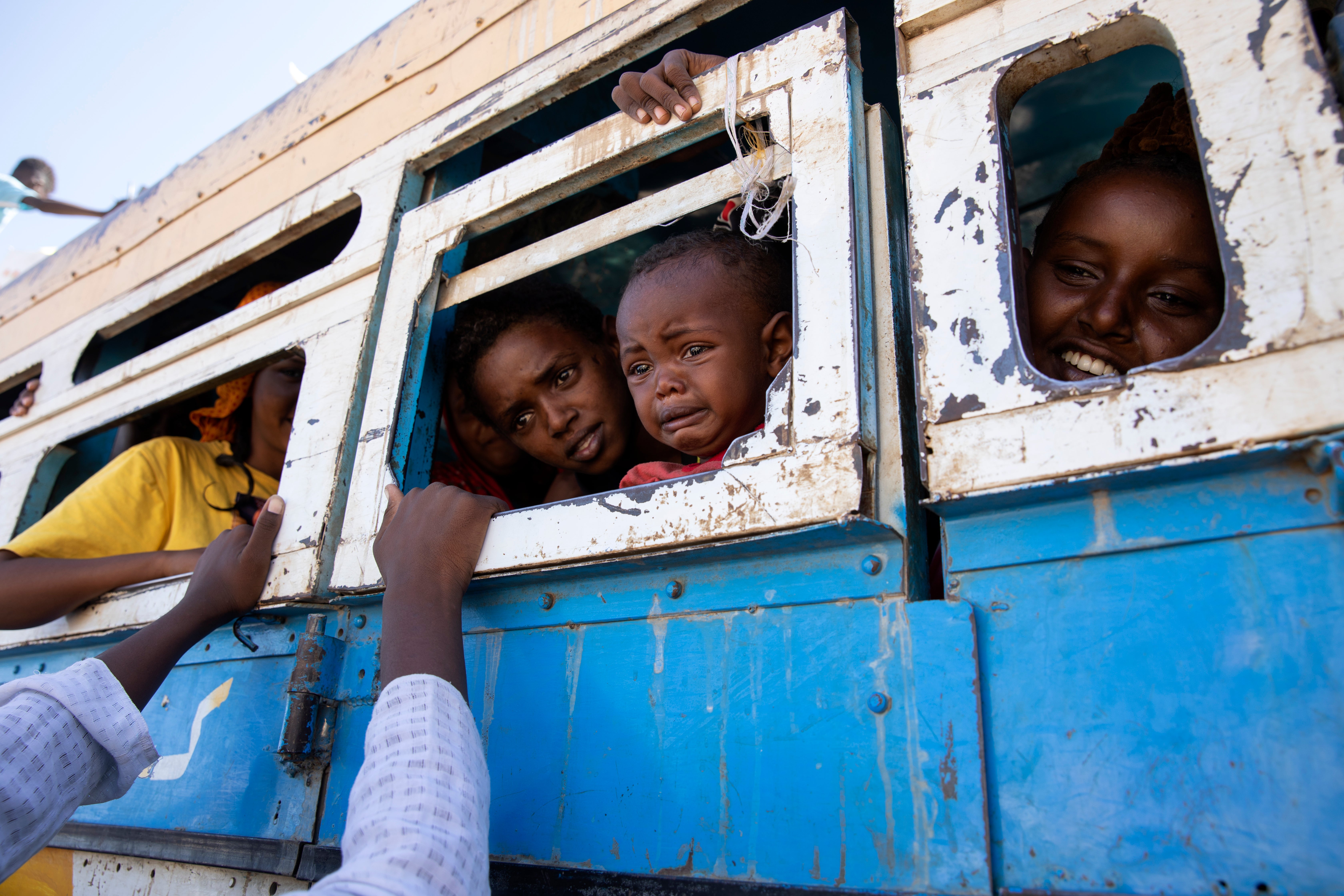Ethiopia gives UN green light to deploy 25 staff to Tigray
U.N. agencies have received approval from Ethiopia’s government to send 25 more staff members to embattled Tigray, a region where the United Nations says hunger is growing and much of the area has been inaccessible to humanitarian workers

Your support helps us to tell the story
From reproductive rights to climate change to Big Tech, The Independent is on the ground when the story is developing. Whether it's investigating the financials of Elon Musk's pro-Trump PAC or producing our latest documentary, 'The A Word', which shines a light on the American women fighting for reproductive rights, we know how important it is to parse out the facts from the messaging.
At such a critical moment in US history, we need reporters on the ground. Your donation allows us to keep sending journalists to speak to both sides of the story.
The Independent is trusted by Americans across the entire political spectrum. And unlike many other quality news outlets, we choose not to lock Americans out of our reporting and analysis with paywalls. We believe quality journalism should be available to everyone, paid for by those who can afford it.
Your support makes all the difference.U.N. agencies received approval from Ethiopia’s government Monday to send 25 more staff members to embattled Tigray, a region where the United Nations says hunger is growing and much of the area has been inaccessible to humanitarian workers
U.N. spokesman Stephane Dujarric called the clearance “a first step towards ensuring that aid workers in Tigray can deliver and ramp up the response given the rapidly rising needs in the region.”
A U.N. humanitarian report released Thursday said life for civilians in Tigray has become “extremely alarming” since fighting began in early November pitting Ethiopian and allied forces against those of the Tigray region, which dominated the country's government for almost three decades before Prime Minister Abiy Ahmed took office in 2018. Each side now views the other as illegitimate.
The government has said well over 1 million people in Tigray have been reached with assistance but some aid workers have reported having to negotiate access with a range of armed actors, even from neighboring Eritrea, and starvation has become a major concern.
As fighting enters its fourth month, international pressure has increased on Ethiopia, Africa’s second most populous country and the anchor of the Horn of Africa, to allow aid workers, journalists and human rights experts into Tigray. Currently, communications are patchy and little is known about the situation for most of its 6 million people.
Dujarric pointed to recent “positive engagements” between the government and senior U.N. officials, including World Food Program Executive Director David Beasley, who just wrapped up a trip to Ethiopia.
Beasley reported that WFP has accepted the government’s request “to help authorities and aid partners transport aid into and within Tigray” and also agreed “to provide emergency food aid for up to one million people in Tigray," Dujarric said.
The U.N. spokesman said humanitarian workers “are looking forward to receiving approval” for 60 staff members from the U.N. and aid agencies who are in Ethiopia’s capital, Addis Ababa, ready to go to Tigray, as well as rapid approval of future requests.
According to last week’s report from the Famine Early Warning Systems Network, which is funded and managed by the United States, “aid workers on the ground indicate a rising in acute malnutrition across the region." It said that “only 1 percent of the nearly 920 nutrition treatment facilities in Tigray are reachable.”
“Many households are expected to have already depleted their food stocks, or are expected to deplete their food stocks in the next two months,” the report said. It warned that more parts of central and eastern Tigray likely will enter Emergency Phase 4, a step below famine, in the coming weeks. Health care in the region is also “alarmingly limited,” the report said.
In a separate statement, the U.N special adviser on the prevention of genocide, Alice Wairimu Nderitu, said she has received reports of serious human rights violations in Tigray, including “extrajudicial killings, sexual violence, looting of property, mass executions and impeded humanitarian access.”